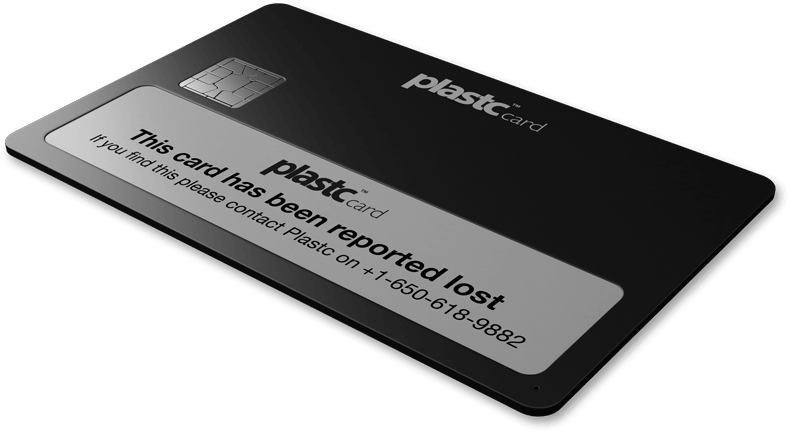“Card tech” startup Plastc today announced its plans for its new digital wallet, replacing credit cards, debit cards, RFID access cards, gift cards and more. On paper, Plastc promises to go above and beyond competitor Coin, offering an expanded set of features that are better optimized for today’s new wireless mobile payment future.

The Plastc card allows users to store up to 20 cards or barcodes on its internal flash memory and ships with a companion iOS Wallet app that lets users manage the card. Plastc looks like a standard 0.8-millimeter-thick credit card, but it features an eInk touchscreen display for selecting stored content, Bluetooth to connect to an iPhone, rewritable RFID, and support for payment technologies such as magnetic stripes, NFC, and EMV chip and PIN. It also includes wireless induction charging and a remote wipe feature that lets users erase the card in case of theft or loss.
Though its feature set is impressive, Plastc will be competing with the upcoming Apple Pay, which is scheduled to launch this month with broad industry support. Apple has worked on Apple Pay with all three major credit card companies, several major banks, and a variety of retail partners such as Macy’s, Walgreens, McDonald’s, Whole Foods, Disney and others.
Despite this competitive threat, Plastc COO Ryan Marquis told The Verge that he is optimistic about the company’s future.
“Ultimately a cloud-based digital wallet will be the winner,” says Marquis, “but with our technology, we can allow consumers to build a digital wallet using a form factor that they’re used to today.” Marquis says there are still many use cases where we need physical cards like subway ticketing machines, ATMs, and gas pumps. “I will utilize Apple Pay because it’s simple and easy, but there are so many use cases in our world where I’m still going to need a physical card,” he says. “There are so many things that point-of-sale machines just aren’t ready for yet.”
Similar to Coin which was announced last year and has yet to ship, Plastc is available now only for pre-order. The card costs $155 and is expected to ship next summer. SOURCE MacRumors














